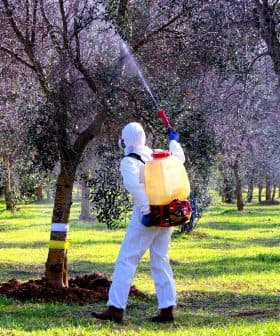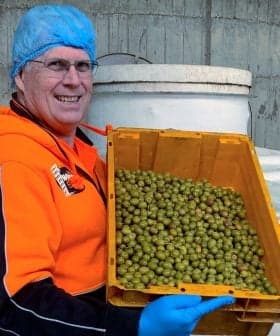Leveraging AI to Enhance Olive Oil Quality, Efficiency and Trust

Artificial intelligence has become a popular topic with large language models, but it has also been helping olive farmers improve efficiency and decision-making for the past decade, as discussed at a recent event in Jaén, Spain. AI tools can improve traceability and build trust in the olive oil sector by analyzing olive pits, identifying the provenance of olive oil, predicting market trends, targeting customers, and optimizing production processes to enhance branding and customer satisfaction.
Over the past two years, artificial intelligence (AI) in the form of large language models – such as Gemini, ChatGPT and Bard – has captured the public zeitgeist.
However, artificial intelligence has been helping olive farmers improve efficiency and decision-making for the past decade.
Earlier this year, city officials in Jaén, Spain, gathered to discuss the many roles artificial intelligence can fill for olive farmers and millers in the world’s most prodigious olive oil-producing province.
Olive oil producers are slowly beginning to see the advantages of moving into this area. They can see how AI can not only enhance branding, but also customer satisfaction.
Among the attendees was Decidata Analytics, a firm specializing in artificial intelligence used to improve data analytics.
Project manager Javier Canego Martinez told Olive Oil Times that artificial intelligence could improve traceability and help build trust in a sector plagued by negative headlines about fraud in recent months.
“AI tools can help ensure that the olive oil is authentic and high quality by checking the type of olives used,” he said. “This can be done by analyzing photos of olive pits using image recognition technology. By providing accurate information about the product, companies can build trust with consumers and maintain a strong brand reputation.”
See Also:Researchers Use AI to Identify the Olive Oil Compounds that Affect Alzheimer’sIndeed, researchers from Italian universities have trained artificial intelligence to identify the provenance of extra virgin olive oil using its phenolic compounds and sterols. In a 2022 study, they reported that the AI correctly identified locally produced Taggiasca Ligure olive oils.
Along with verifying authenticity, Canego Martinez believes AI-powered tools can help producers and retailers target customers with personalized advertising.
“By understanding what consumers like and how they behave, companies can customize their messaging and promotions to reach specific groups more effectively,” he said.
“AI can further predict market trends for the olive oil sector, along with consumer demands, helping companies adjust their strategies ahead of time,” Canego Martinez added. “This allows them to optimize inventory, pricing and marketing efforts to stay competitive.”
Diego Hueltes, a computer engineer and consultant, has demonstrated that AI models can accurately predict prices. He developed three predictive price models using historical pricing data, climate data, and data about previous harvests to predict prices for 2017 and 2018 accurately.
Most of the AI technology for these applications is not as well known as the consumer-facing large language models that yield the current generation of generative AI.
However, Canego Martinez said generative AI can help anyone involved in the olive oil world fill out documents and forms and produce “high-quality content, including social media, blogs, videos, and other marketing tools.”
“Olive oil producers are slowly beginning to see the advantages of moving into this area,” he said. “They can see how AI can not only enhance branding for olive oil companies but also improve overall customer satisfaction.”
During the event in Jaén, officials discussed the use of AI for customer support chatbots and how farmers and millers can use existing AI tools to predict harvest timing and market trends.
Along with artificial intelligence, there was discussion about using blockchain technology to improve traceability and crack down on theft and fraud.
In addition to the marketing and customer-facing parts of the business, Canego Martinez said farmers and producers can use AI to make their operations more efficient and sustainable.
“AI allows for optimizing production processes, making them more efficient and sustainable,” Canego Martinez said. “This includes the appropriate use of natural resources such as water and fertilizers, reducing environmental impact, and promoting responsible agricultural practices.”
At a June conference in Mengíbar, another city in the province of Jaén, researchers presented an AI platform that accurately predicted olive harvest timings a season in advance using meteorological and historic harvest data.
“AI and machine learning also play a fundamental role in objectifying decision-making,” Canego Martinez said. “These technologies allow companies to analyze large volumes of data and extract precise, evidence-based insights. This eliminates subjectivity and human bias, enabling more informed and fair decisions.”
Canego Martinez also pointed to pest control as an example of how AI tools can help olive farmers in their daily work.
“Machine learning models can help predict when pests might show up by looking at past data and environmental factors, which is extremely useful for farmers when making crop management choices,” he said.
“They can also give a heads-up on future crop yields based on how things are growing right now, making it easier for farmers to plan ahead,” Canego Martinez added. “Optimizing irrigation is also a possibility, like what Agrow Analytics offers in Spain… Moving forward, the application of AI and machine learning will continue to produce higher-quality oil.”









